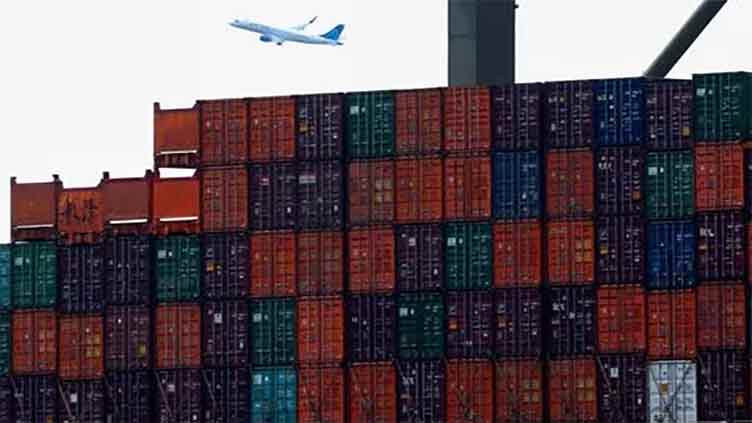NY Fed says global supply chain pressures eased in December

Business
NY Fed says global supply chain pressures eased in December
NEW YORK (Reuters) - Supply chain pressures cooled down last month, the Federal Reserve Bank of New York said on Friday, but it's possible the benign reading may be the calm before some turbulence arrives.
The bank’s Global Supply Chain Pressure index moved to a reading of -0.15 in December from November’s upwardly revised 0.13.
December's negative reading points to below-normal supply chain pressures, which suggests a diminished contribution to inflation pressures. The bank provided no commentary on what drove the latest changes in the index, which returned to negative territory where, save the positive November reading, it's been since February 2023.
Supply chain pressures have figured prominently in the debate over inflation drivers for some time. Disruptions in the movement of goods was a key factor pushing the inflation surge that struck in the wake of the onset of the coronavirus pandemic. Supply chain pressures peaked in December 2021 when the New York Fed index stood at a record 4.33, and have moved down fairly steadily since that point, which has in turn also tracked a retreat in inflation pressures.
Easing price pressures have also allowed the Fed to almost certainly end the process of hikes in its short-term rate target, with policymakers now eyeing rate cuts over the course of the year.
But Fed officials are also mindful that the supportive role supply chains have provided for improving inflation readings may be over.
Meeting minutes for the Fed's December rate-setting meeting, released Wednesday, said "several participants assessed that healing in supply chains and labor supply was largely complete, and therefore that continued progress in reducing inflation may need to come mainly from further softening in product and labor demand, with restrictive monetary policy continuing to play a central role."
Fed officials also listed supply chain issues as a potential upside risk going forward, flagging "a potential rebound in core goods prices following the period of supply chain improvements."
That risk may also be on the rise due to challenges to shipping in the waters of the Middle East, where attacks on commercial vessels have been disrupting traffic and risking a possible shift in boat traffic toward longer and more expensive routs. Shipping giant Maersk said on Friday it was rerouting all its ships scheduled to travel via the Red Sea around the Horn of Africa, for example.


